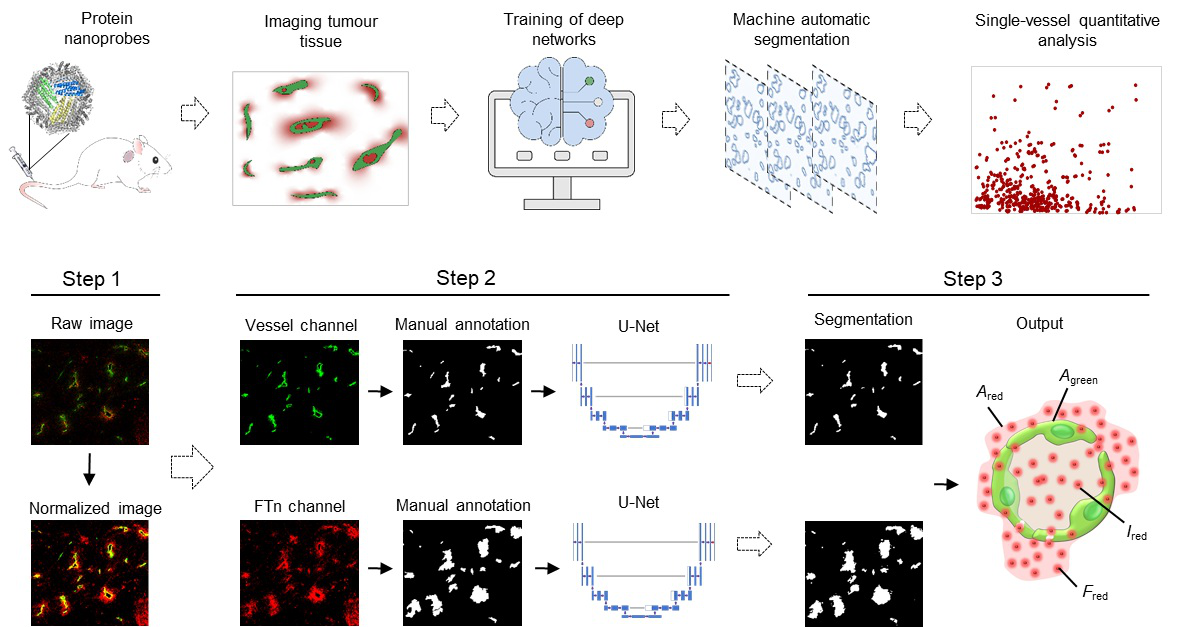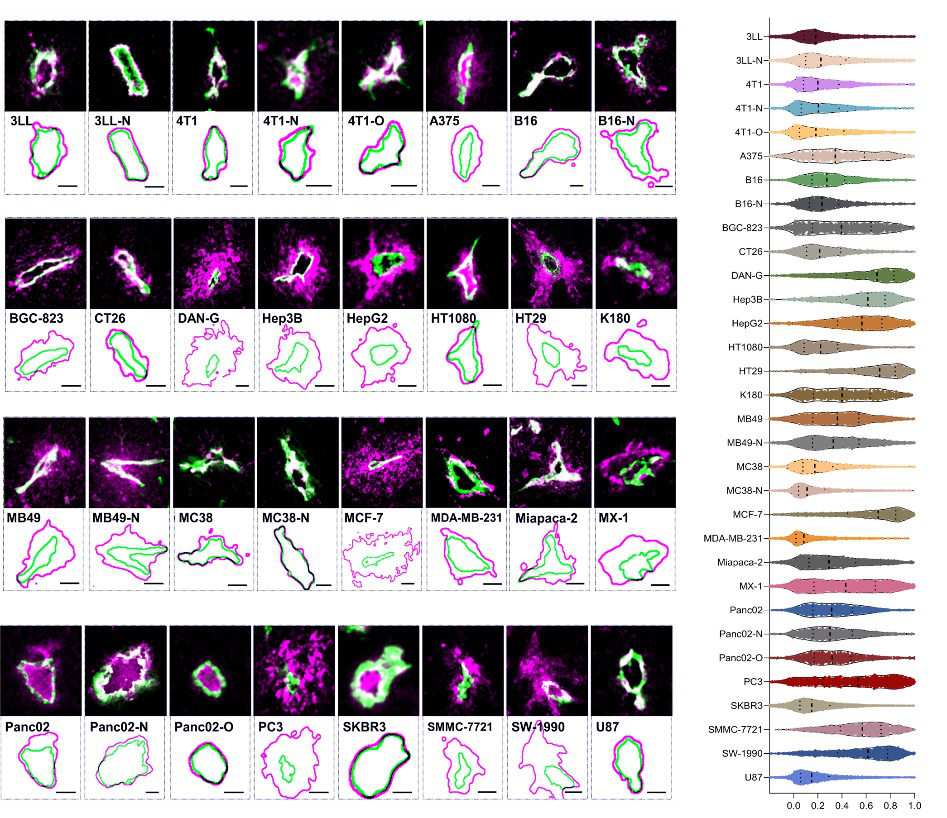Time:2023-02-28 Browse times:10

Figure 1 Nano-ISML technology based on machine learning and protein nanoprobes
Professor Huang Xinglu of Nankai University, in collaboration with the team led by Yan Xiyun from the Institute of Biophysics of the Chinese Academy of Sciences and the team led by Tian Jie from the Institute of Automation of the Chinese Academy of Sciences, harnessed genetically engineered protein nanoprobes and deep learning-based image segmentation technology to develop new technology for high-throughput quantitative analysis of single-vessel permeability of tumor (Nano-ISML). Through the analysis of over 30 different tumor models (>67,000 blood vessels totally), the results demonstrated great heterogeneity in tumor vascular permeability. They found that there was a >100-fold difference in the permeability of tumor blood vessels, which was depended on tumor types and vascular types. Using this technique, they further revealed the formation mechanism of permeable heterogeneity of vascular endothelial cells. High and low permeable vessels were mainly dependent on passive and active penetration mechanisms, respectively. Based on this mechanism, they put forward a classified design principle of nanomedicines in treatment of high- and low-permeable tumors.

Figure 2 Permeability of nanoparticles in different tumor vessels (left) and quantitative analysis of vascular permeability for each vessel (right)
The work was published on February 13 in an online article entitled “Machine Learning-assisted Single-Vessel Analysis of Nanoparticle Permeability in Tumour Vasculatures” in the journal Nature Nanotechnology. The Nano-ISML technology developed in this study realizes quantitative analysis of vascular permeability and the shift from average permeability of the whole tumors to quantitative analysis of single vessels. The high-throughput single-vessel quantitative analysis technology can be extensively applied to other related research, such as research on molecular mechanism of vasculatures, drug screening, and drug delivery. The differentiated permeable mechanism and design strategy for nanomedicines will provide theoretical basis and principles for the development of next-generation personalized nanomedicines. The study integrates the fields of nanotechnology, artificial intelligence (AI) and synthetic biology, and also offers a model for addressing scientific problems by using interdisciplinary technology.
Mingsheng Zhu, a Ph.D candidate at the College of Life Sciences of Nankai University, and Jie Zhuang, associate professor of the School of Medicine, are the co-first authors of the paper. Prof. Xinglu Huang from Nankai University, Prof. Xiyun Yan from the Institute of Biophysics of the Chinese Academy of Sciences, and Prof. Jie Tian from the Institute of Automation of the Chinese Academy of Sciences are co-corresponding authors.
Link: https://www.nature.com/articles/s41565-023-01323-4